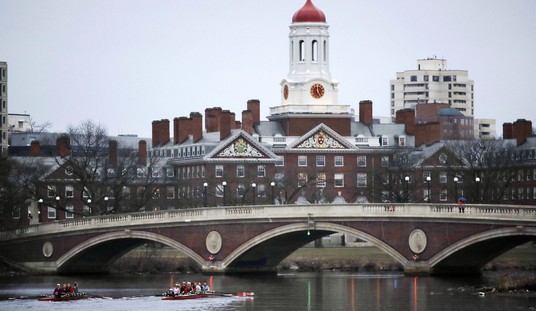Last year, a senior at Roswell (New Mexico) High School was ticketed for blocking a fire lane outside a middle school and for driving without a license. When the Roswell police officer who stopped her discovered that she had no proof of legal U.S. residency, he notified immigration authorities; rather than fight deportation, she agreed to be sent back to Mexico. Over the past few weeks, newspapers across the country have discovered the tale and used it to lecture Americans on the “rights” (thanks to a 1982 ruling by the U.S. Supreme Court) of school-age children illegally in this country.
For example, in March the Chicago Tribune described the events in New Mexico and declared, “A 1982 Supreme Court ruling guarantees children who are in the U.S. illegally the right to a public education and says schools cannot inquire about their immigration status.” The Chicago Tribune’s depiction of the holding in Plyler v. Doe, 457 U.S. 202 (1982), proves Will Rogers was right when he opined, “It isn't what we don't know that gives us trouble; it's what we know that ain't so.” For that landmark ruling held only that, because illegal aliens are “persons” under the Equal Protection Clause, if states deny them free primary education, states must have a basis that passes “intermediate scrutiny.” Specifically, the Court held that a new Texas law did not pass that test. Thus, contrary to the claim by the Chicago Tribune, Plyler: (1) does not apply to secondary and post-secondary education; (2) did not hold that public education is a right; (3) does not confer legal status on illegal alien children; (4) does not prevent an illegal alien from being arrested and deported; and (5) does not prevent a school from inquiring as to the legal status of and reporting illegal aliens. Finally, Plyler does not prohibit a state from denying primary education to illegal aliens; Plyler holds only that, if a state does, it needs a better reason than Texas had in 1982.
Recommended
The Chicago Tribune failed to note that the ruling is the epitome of “judicial activism.” Five liberal justices, acting as if they were elected to Congress, ruled “illegal alien children” a “special class” and that Texas had not shown that its law “had a substantial relationship to a substantial state interest” when it voted to deny them free education. The justices admitted that free school was not a “right” but said it was a special benefit whose denial violated the Equal Protection Clause. They relied on these “facts”: there are only 3 million illegal aliens in the United States; Congress might declare illegal aliens to be citizens; illegal aliens will never leave so citizens should pay to help them improve themselves; citizens are “callous” toward illegal aliens so courts must protect them from “neglect”; and the cost of paying to educate illegal aliens is not as important as the psychological toll on them of not having free education.
Chief Justice Burger, with Justices Rehnquist, White, and O’Connor, responded with a vigorous dissent: “in an effort to become an omnipotent [] problem solver[,]. . . the court distorts our constitutional function”; “the importance of a governmental service does not elevate it to the status of a fundamental right”; “assum[ption of] a legislative role [is] one for which the court lacks both the authority and competence”; “[i]llegal aliens have no right whatever to be here, and the state may reasonably, and constitutionally, elect not to provide them with governmental services at the expense of those who are lawfully in the state”; “the constitution does not provide a cure for every social ill, nor does it vest judges with a mandate to try to remedy every social problem.”
More than a quarter century later, it is not just the wisdom of the dissent that throws Plyler into doubt; it is the “facts” relied on by the majority that “ain’t so!”























Join the conversation as a VIP Member